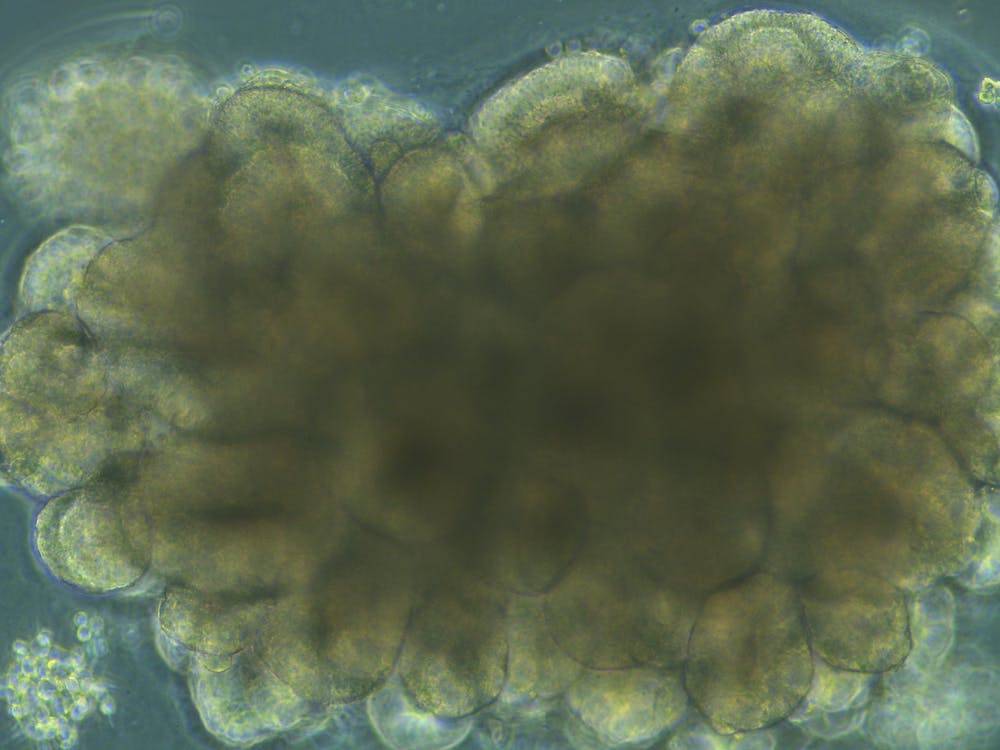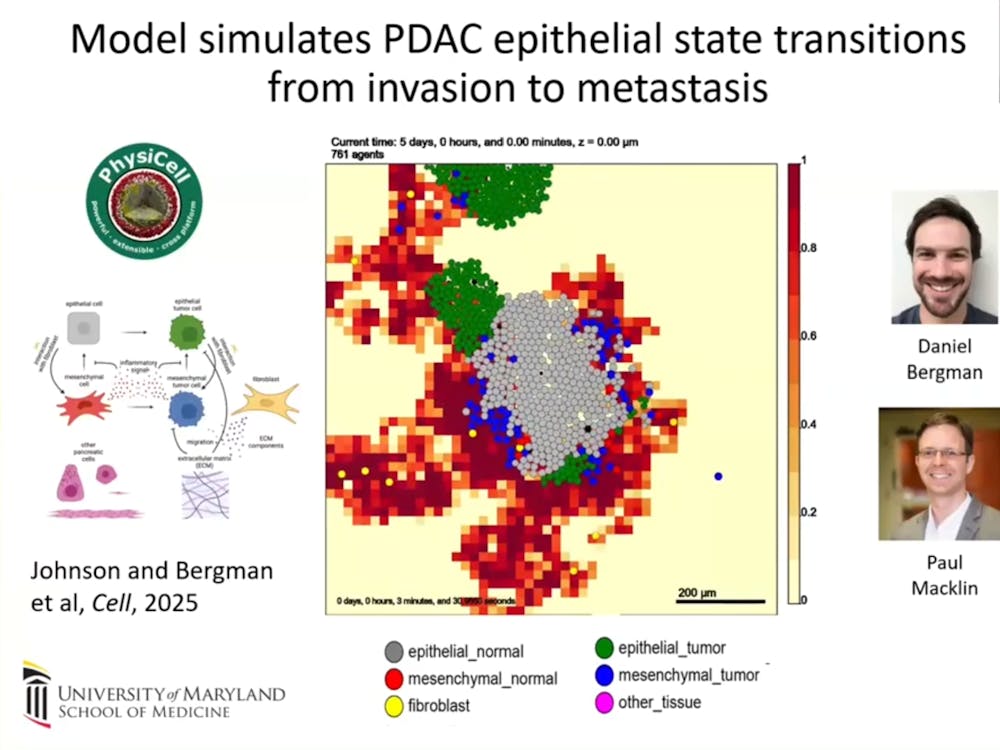Utilizing 3D cultures of human brain cells, Hopkins researchers found promising evidence that the future of biocomputing has the potential to be faster, more powerful and dramatically more energy-efficient than silicon-based computing and artificial intelligence. They have coined the term of this new concept as organoid intelligence. The team’s article, published in the journal Frontiers in Science, outlines their plans and goals for organoid intelligence.
So far, biocomputing has been limited to the use of DNA to store digital data. In order to continue developing biocomputing, major advances in the interfacing of brain cell cultures and computers are needed.
The team proposes connecting brain organoids — lab-grown tissues that resemble organs — to computers, sensors and machine interfaces to enable supervised and unsupervised learning. They also envision employing biofeedback to systematically train organoids with progressively more sophisticated sensory inputs and output opportunities.
According to the researchers, this is where organoid intelligence differs from artificial intelligence: while artificial intelligence uses computers to mimic brain functions, organoid intelligence aims to use 3D brain cultures to replicate computer operations.
Lena Smirnova, an assistant professor in the Department of Environmental Health and Engineering at the Johns Hopkins Bloomberg School of Public Health, co-leads the investigation. In an interview with The News-Letter, Smirnova discussed the rationale behind organoid intelligence.
“We have developed a concept of organoid intelligence to explore the potential of human brain cell-based organoid cultures, advance our understanding of the brain and neurological diseases and unleash new forms of biocomputing while recognizing and addressing the associated ethical implications,” she said.
Organoid cultures have been used by scientists to conduct experiments on kidneys, lungs and other organs without the need for animal testing.
Smirnova and her team use brain organoids that are specks no bigger than the tip of a needle, and each organoid is made up of around 50,000 cells. These 3D brain organoid cultures are produced with a high cell density of neurons and supporting cells, along with enriched levels of gene expression critical for learning. 3D cultures are much more accurate representations of brain structure and functionality compared to previous 2D cultures. For example, 3D cultures contain myelinated axons and spontaneous electrophysiological activity, and they demonstrate complex oscillatory behavior.
Smirnova noted that the biggest obstacle has been harnessing the computing capacity of these organoids.
“The biggest challenge is to ‘unleash the new forms of biocomputing.’ We are very much aware that we put our very ambitious goals there," she said. "But this is what makes our work as scientists so exciting — overcoming the challenges, getting new insights into the complexity of human biology in order to advance human health and make our world a safer place."
Research into organoid intelligence aims to leverage the biological processing power of the brain. Compared to machines, human brains are better at processing complex information because they can cope with sparse and ambiguous data. Biocomputers have the potential to alleviate the energy demands of silicon-based computing.
The researchers estimate that humans operate at a 10^6-fold better power efficiency relative to modern machines. Organoid intelligence could dramatically improve the understanding of neurodevelopmental and neurodegenerative disorders.
“We can tackle a lot of different aspects. For example, advanced models for neurodevelopmental disorders. Or neurodegeneration, which can help with drug development,” Smirnova said.
This research itself has sparked complex ethical concerns. These questions are mainly concerned with the possibility of creating an entity that exhibits consciousness. These worries will only intensify as organoid intelligence develops because, in theory, organoids will process information about their environment and develop rudimentary memories. A more in-depth analysis and research of the neurobiological aspects of moral importance that contribute to human capacities, including consciousness, may be necessary.
The researchers have proposed an embedded ethics approach where interdisciplinary and representative teams of ethicists and researchers discuss and analyze ethical issues. This information will be used to guide future research and work, ensuring that organoid intelligence develops in an ethically and socially responsible manner.
Smirnoff maintained that the development in biocomputing holds promise in improving the capabilities of modern computers and creating new fields of study.
“We outline a big vision. To many people, it’s science fiction, but, by outlining that, we give a trajectory [of] where we need to move forward,” she said.





